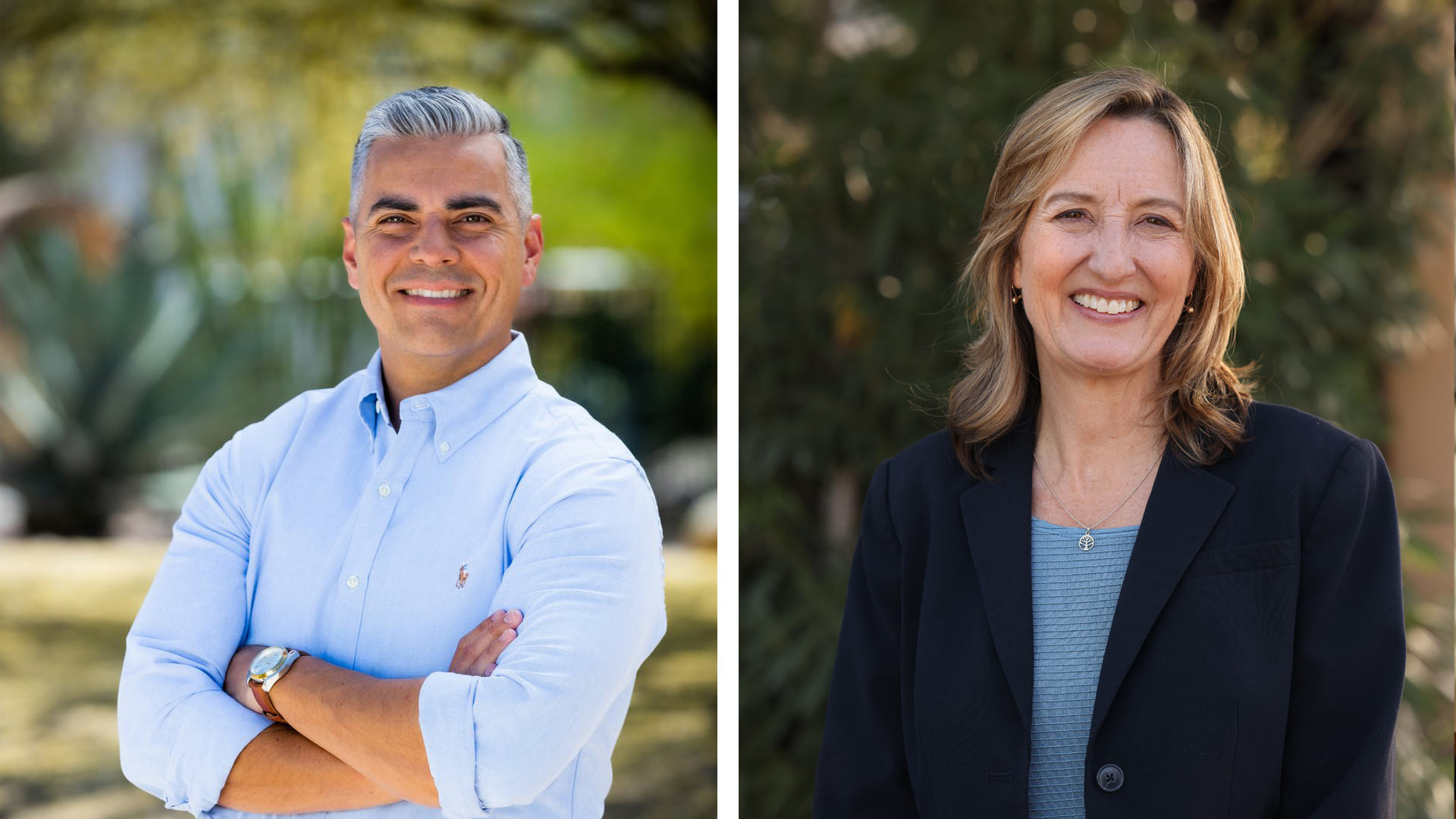 Republican incumbent Juan Ciscomani (left) and Democratic challenger Kirsten Engel (right) are running for Arizona's Congressional District 6.
Republican incumbent Juan Ciscomani (left) and Democratic challenger Kirsten Engel (right) are running for Arizona's Congressional District 6.
Two topics leading the Congressional District 6 debates are abortion and the border. Both CD6 candidates have been attacking each other for their handling of these issues.
One of Ciscomani’s repeat criticisms of Engel is that she’s weak on border security, which he continued to accuse her of during a Clean Elections debate earlier this month.
“And for someone that was in the state legislature — actually, you've been an elected official longer than I have,” he said. “Five years in the legislature, and not much to show for it, Kirsten. When you look at you voting against the border strike force, that was a clear example of where you stand on the border.”
Engle did vote against funding the Border Strike Force as part of a larger budget vote, as did all Democrats at that time because numerous funding items did not align with Democratic priorities.
The Strike Force was established under Republican Governor Doug Ducey. But reporting in the Arizona Republic showed that much of the seizures and enforcement efforts credited to the strike force actually came from routine Department of Public Safety traffic stops and were made nowhere near the border and didn’t involve smuggling or organized crime.
Many Democrats, including Engel, have become tougher in their rhetoric around border security, no longer shying away from the word crisis, as the number of people crossing the border unauthorized has increased.
“President Biden, let's be real, he was late to see what a crisis it was becoming,” she said during the debate. “We need to secure the border.”
Engel is also accusing Ciscomani of not making strides on border security.
“We had the opportunity to do so the bipartisan border security deal that was backed by the Border Patrol union, that would have put more boots on the ground, would have put in fentanyl detection system at our ports of entry, would have hired thousands of more asylum officers and judges,” she said. “It was a true bipartisan deal that would have pushed us way ahead in dealing with this problem at the border. But my opponent opposed it, rejected it out of hand, just days after President Trump made it very clear that he wanted to keep the border a crisis so that he could run on it for his presidential campaign.”
The bill Engel is referring to is the bipartisan border security deal that was killed by the Senate early this year. Ciscomani has pointed out that the bill never got to the House. At the time, he said he could not support it as is, but he told AZPM he would have been open to working on it if it had made it to the House.
But just as many Democrats have become more centrist on border security, numerous Republicans have become more centrist in their rhetoric on abortion rights during this election cycle. One of Engle’s criticisms of Ciscomani is that he’s extreme on abortion.
“He has sided with the extremists over and over again, to raise costs, to restrict abortion access and even to reject a bipartisan border deal to secure the border,” she said.
On Ciscomani’s re-election website, he says that he is pro-life but rejects extremes. He says he is for timetables, without naming any specifics, and that he supports exceptions, including for rape, incest, and the life of the mother.
And while his votes don’t directly contradict that, he has consistently voted to restrict abortion access.
He voted in favor of prohibiting abortion medication from being sent through the mail. He also voted for legislation that would have blocked the Defense Department from paying for expenses for military members or their families who have to travel out of state for abortion care.
Ciscomani told us that his position is consistent with what the law has been — without explaining his stance on access to abortion in this scenario.
“The federal government, through the Hyde Amendment that has been in place for a long time now, doesn't allow for the federal government to be spending federal dollars and taxpayer's money into this issue as well,” he told AZPM.
He has said that abortion should be decided by the states, while Engel told us it should be regulated federally because many states are now restricting abortion access.
“The federal government can step in and preempt state law,” she said. “So these things really are fundamental, fundamental health care rights, I believe, that shouldn't vary by state.”
A recent Kaiser Family Foundation Health poll found more than half of respondents want nationwide abortion protection.

By submitting your comments, you hereby give AZPM the right to post your comments and potentially use them in any other form of media operated by this institution.